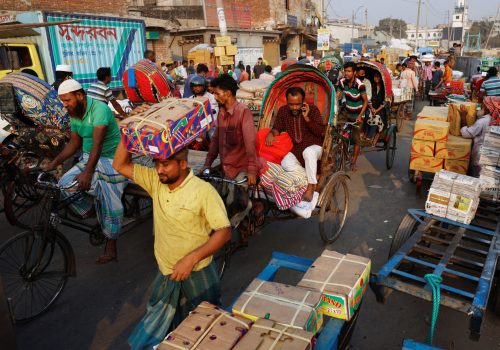Pakistan’s rapidly digitizing society requires clear policymaking
A rapidly digitizing society, in which access to affordable mobile internet has become the norm, is seen as a transformative opportunity for Pakistan. This, in addition to the fact that the majority of the country is below the age of thirty, is often cited as a datapoint that highlights the economic, technological, and social tailwinds of which Pakistan is primed to take advantage. As a result, Pakistan’s technology ecosystem has taken off in the last few years, attracting record inflows of investment into the country’s burgeoning startup ecosystem, and earning critical export earnings through both technology companies and freelancers selling their services in global markets.
At the same time, recurring economic and political crises, coupled with policy instability and ad hoc interventions in key sectors—including technology— continue to cast a dark shadow. These issues have been compounded by regulatory and legislative proposals that have raised concerns among both civil-society and private-sector actors, including foreign companies operating in Pakistan.
To better understand the regulatory and legislative state of play in Pakistan’s technology ecosystem, and to uncover ways in which policymakers can build confidence among key stakeholders, the Atlantic Council’s South Asia Center hosted a private roundtable in February 2023. This document seeks to highlight the concerns raised in this convening, and provides recommended steps that policymakers in Pakistan ought to take to address key concerns around free expression on the internet, and to generate momentum to catalyze higher levels of growth in Pakistan’s technology ecosystem.

The South Asia Center is the hub for the Atlantic Council’s analysis of the political, social, geographical, and cultural diversity of the region. At the intersection of South Asia and its geopolitics, SAC cultivates dialogue to shape policy and forge ties between the region and the global community.
Related content
Image: A general view shows road traffic during the monsoon rain in Karachi, Pakistan July 5, 2022. REUTERS/Akhtar Soomro


